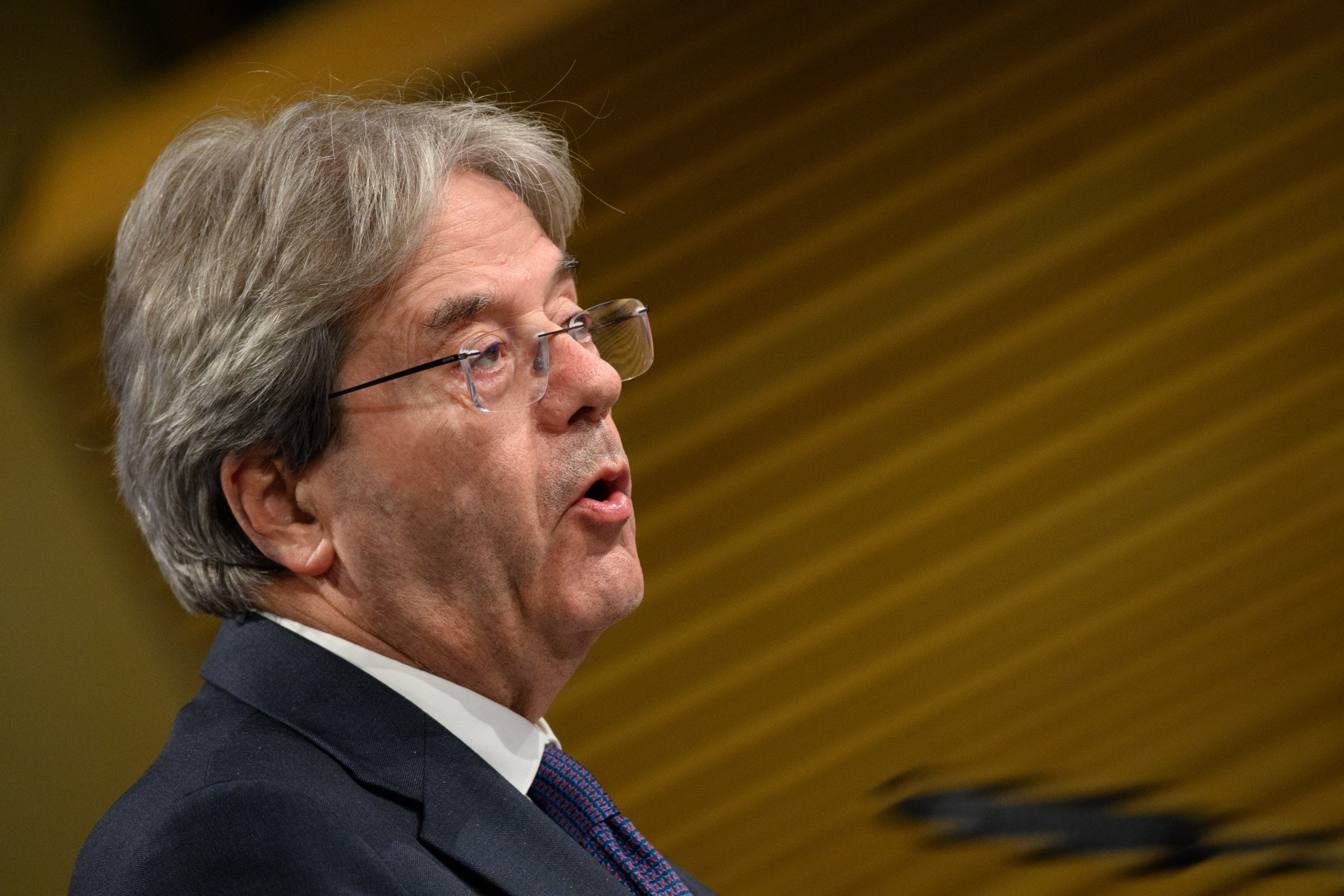Remarks by Commissioner Gentiloni at the Eurogroup press conference
 ©European Union, 2020, Source: EC - Audiovisual Service
©European Union, 2020, Source: EC - Audiovisual ServiceGood evening.
As you said Paschal, we started with the discussion on the macroeconomic situation: Our economy continues to show signs of resilience, amid a very challenging environment.
Starting with the good news: inflation in the euro area fell to 2.9% in October, down from 4.3% in September, and the moderation was broad-based across all main categories. This drop means inflation is now at its lowest level since July 2021. We know that the reduction going forward will not be fully linear – there will still be bumps along the road – but the direction is downward and it is very clear.
Second, business and consumer confidence appear to be stabilising, in a certain sense, after months of marked declines.
Third, the labour market remains resilient, despite signs of cooling. The unemployment rate has hovered between 6.4% and 6.5% between June and September.
Nevertheless, the near-term outlook remains challenging. GDP contracted by 0.1% in the euro area in the third quarter, and was 0.0% in the European Union. And short-term indicators signal continued weak economic momentum at the start of the current quarter.
So far, the impact of the tragedy in the Middle East – in Israel and Gaza – the impact on energy markets has been contained, but of course there is a risk of increased prices if the conflict were to escalate. And of course, in any case the new geopolitical tensions further add to risks and uncertainty.
Next Wednesday I will present our Autumn Economic Forecast, which will factor in all the latest developments.
Now, in this context, the coordination of our economic and fiscal policies is even more important. On this point, let me say a few words on our assessment of the Draft Budgetary Plans for 2024, which we will present on 21 November.
Our Opinions will assess in detail the draft budgets against the recommendations adopted by the Council in July. We will be looking in particular at three things; first, the growth of net primary expenditure; second, the withdrawal of energy support measures; and third whether the nationally financed public investment is being preserved.
This exercise will be very important after several years with the General Escape Clause and with, as you now, quantitative country-specific recommendations that we have again adopted.
So, 15 November the forecast and 21 November, the opinions on the Budget. Two important appointments for our economic and fiscal coordination.
We also had a very good discussion, as Paschal just said, on the euro area’s competitiveness, based on a very interesting note provided by my services.
Of course competitiveness matters: it is the only way to ensure high levels of prosperity for all our citizens in the longer run.
Europe is faring well in some dimensions of what we call competitive sustainability, such as environmental or social welfare. But we are lagging behind on innovation and spending in R&D. Productivity growth remains weak. And we are critically dependent on third countries in certain strategic sectors, particularly in those driving the green and digital transitions.
Let me highlight some points which I consider crucial to address these weaknesses:
First, we need to unlock the full potential of the Single Market to generate innovation and growth. We also need to be mindful about avoiding fragmentation when we implement our industrial policy.
Second, we need to foster private investments.
Third, we must maximise the benefits of trade openness, while minimising our strategic vulnerabilities. This balance is a key element of our economic security strategy.
And last, we need to ensure an attractive EU business environment, with skilled workers, a stable regulatory environment and reduced administrative burdens for companies.
So, I am looking forward to the reports that two Italian former prime ministers are preparing: Mario Draghi, on the future of European competitiveness and Enrico Letta, on the future of the single market.
Thank you.
